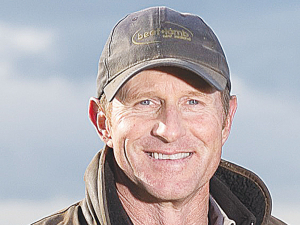There has been a paradigm shift in our sector. So, it is pleasing to see Beef+Lamb New Zealand's renewed strategy reflecting this change.
Two of the organisation's three priorities are "outside of the farm-gate", namely championing the sector and increasing market returns. The third priority, supporting farming excellence, means they will continue to deliver extension and support farmers to run sustainable and profitable farming systems.
This strategy shows that the organisation will do the advocacy and market development work on farmers' behalf.
Put simply, it means we can just get on and do what we do best, producing the world's best grassfed red meat for New Zealanders and global consumers.
B+LNZ's six-yearly referendum is underway, and farmers have until 9 July to vote for the continuation of their levy-funded organisation.
I believe industry-good entities have never been more important to fight the fight on our behalf. They have already proven their worth.
Without B+LNZ's advocacy (alongside others) we would likely be paying a carbon tax through the Emissions Trading Scheme, we would be trying to meet impractical winter grazing regulations, we would be losing significant market returns due to trading tariffs and we wouldn't have trained staff to work on our farms or support our sector.
It's worth taking some time to consider what our sector would be like without B+LNZ. All farm extension programs, including field days and events, workshops, Farming for Profit, AgInnovation and Farm Smart programs would stop happening.
Beef+Lamb NZ Genetics would cease to operate, affecting Sheep Improvement Ltd (SIL) and nProve.
The critical work done developing farm plan modules to enable farmers to meet the regulatory changes, along with other tools to measure emissions would no longer happen.
It was B+LNZ that commissioned vital research that found NZ sheep and beef farms are already close to being carbon neutral. It also came up with an analysis of land use change to forestry in Wairoa, which demonstrated the significant potential negative impacts of large-scale afforestation in rural NZ.
This evidence-based approach has given our sector the facts we need to challenge and influence the thinking of government, policy makers, regulators and NGOs.
As chair of B+LNZ's National Farmer Council, I have gained insight into the enormous amount of work B+LNZ does to support and advocate for farmers at Government, regulator and policy level.
B+LNZ staff have built strong relationships with policymakers and the organisation is respected and trusted. Without this respect and trust we cannot influence change, but there is still so much more to do.
Please take the opportunity to vote in B+LNZ's referendum and ensure we retain our voice.
Paul Crick is national chair of Beef+Lamb New Zealand's Farmer Council.









